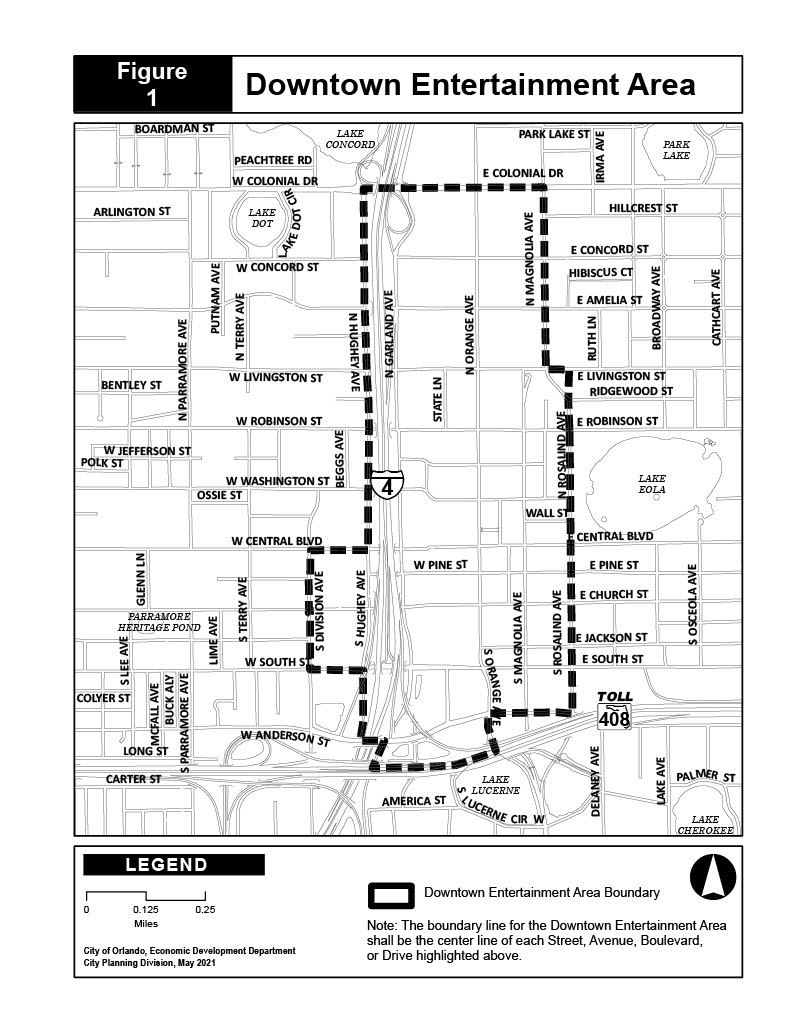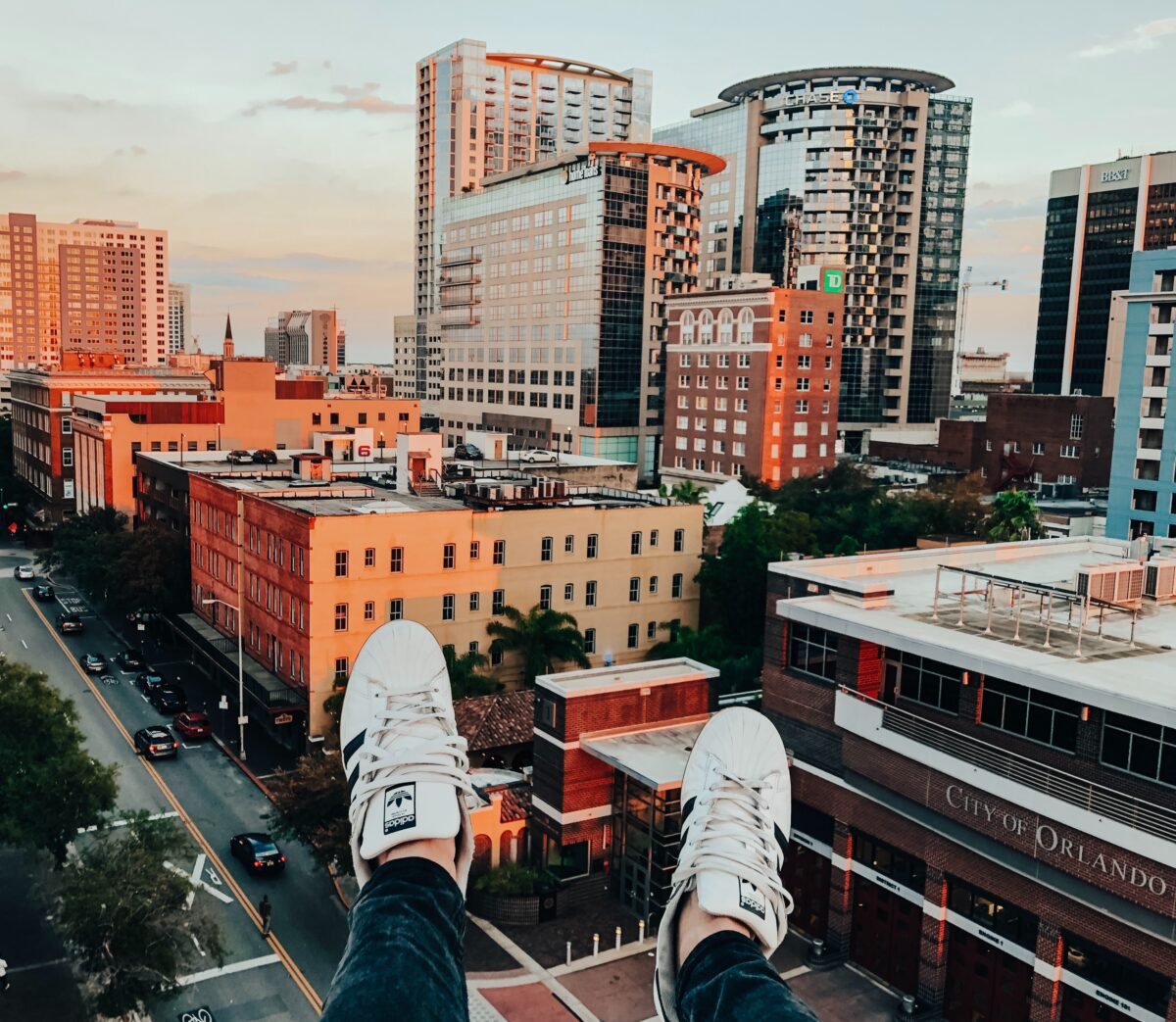Orlando officials at city hall are workshopping some more changes for the Downtown Entertainment District that would make it more difficult, and in some cases illegal, to operate nightclubs past midnight, without required safety measures in place.

A group of executive city staff held a meeting with downtown Orlando stakeholders and business owners on January 17 during which they shared the news that an ordinance was in the works that would shift safety measures within the downtown core away from the city and onto the shoulders of downtown bar and nightclub owners as well as introduce more restrictions on how they operate.
Among the changes is a proposed six-month moratorium on new nightclubs in the downtown core, a moratorium that could come with an option to renew the moratorium for another six months if the trial proves satisfactory to city staff.
Other changes include requiring bars that serve liquor after midnight with occupancies of at least 150 people to have a special late-night operating permit, to hire off-duty police officers and licensed security guards. The larger your venue, the more officers will be required. Smaller venues with under 149 people will be exempt.
Any venue with an occupancy of 50 people and above would also need to have a metal detector installed – which can be paid for in part by the CRA’s S.A.F.E Program, which covers up to 80% of those costs.
The changes come on the heels of an ongoing shift from the mayor’s office to how downtown Orlando’s nighttime economy has been functioning for the past few decades, an economy that is almost entirely driven by bars and nightclubs – of which there are 90 within the district. Orlando, as well as major urban centers across the nation, have seen a spike in violence and crime in the downtown core post-pandemic, and in an effort to curb the number of shootings and fights taking place here at home, Dyer’s office has been making some big changes in how businesses operate, including:
- Limiting the number of vendors and venues allowed to operate in the downtown right-of-way to shift downtown visitors indoors, rather than encouraging more people to linger in the streets – including sidewalk cafes.
- Imposing new restrictions on outdoor speakers for the same reason as the reduction in street vendors; to make it less fun outside and discourage loitering.
- Rolling out a series of downtown checkpoints and an increased police presence to discourage bringing firearms and drugs into the downtown core.
- Updating what is legally defined as a nightclub or bar in the city’s Land Development Code in order to better enforce new ordinances and restrictions on how and where they operate.
Police Chief Eric Smith, hired last May, has since shared that while those changes, coupled with an increase in officers patrolling downtown on the weekend, has led to a decrease in crime, it has also created an “unsustainable financial burden,” according to a recent report from Orlando Sentinel, where he estimated that they were spending $40,000 each weekend on crime prevention and staffing.
It should be noted, that the budget for the Orlando Police Department was increased by 7.5% last year, bringing the total Police Department budget to $210 million.
Despite that increase, the added cost of the police surge downtown is currently being paid for by the Community Redevelopment Agency, a special taxing district that reinvests tax dollars from within a certain area back into the downtown. City officials have been open that they are actively looking for new ways to pay for those ramped-up police services, which is a major factor in why they are pushing for businesses operating past midnight to pony up.
Scott Kotroba, a local business owner and principal at Pine Street Concepts, the ownership team behind McQueens Social Lounge, Bullitt Bar, Attic, Treehouse, Basement, Crow, and soon-to-open Papi Smash Burgers, recently shared a statement expressing his concern and “dismay” in regards to the recent ordinances.
“As a bar and nightclub owner and downtown investor for over 15 years who spends most of my time in downtown Orlando, I want a safe downtown more than anyone. I was happy to hear about how much the recent officer surge in downtown Orlando has reduced crime and helped take more guns off the streets. With Florida’s gun laws, we will always have that issue to deal with. I really appreciate the hard work of some at OPD and to those officers who work extra duty and have helped with the surge. However, when I heard the City of Orlando’s plan to introduce an after midnight alcohol sales permit, I was baffled that the proposal was a cost-sharing plan split only among 4COP liquor license holders when our downtown attracts people for hundreds of other reasons. To assume that nightlife patrons are the only people in our community who seek to harm others and disrupt the order is outrageous and incorrect. In fact, as you’ve heard it said before; the safest place in our downtown is in our nightclubs because we have the most incentives to operate safely – our patron’s safety, employee’s safety, financial investments and requirements to keep our heavily regulated licenses are essential for our existence. […]
The permit also has suspension/revocation criteria that could make a business lose their permit because of factors that are totally out of our control such as the behavior of our guests or employee call-outs not to mention the list of infractions provided are already being patrolled by other agencies like the State of Florida ABT, Department of Business & Professional Regulations, the Orlando Fire Department and the Orlando Code Enforcement. This permit seems to overlap and is severely redundant to those already responsible for these laws/codes.The City’s proposal could put me out of business. My businesses cannot survive without the sales we do after midnight, nor can it afford to take on the expense of $90 an hour off-duty police officers that are overworked and not inclined to actually patrol.
Also, these major questions have to be addressed… If this is a permanent change why are we using off-duty officers? Why are we not making this part of their normal work week which would then drop the cost by at least 67%? ($90/hr plus 10% admin fee to approximately $30/hr). Why are we paying administrative fees if this is part of their full-time schedule? If this is that important to public safety why are we using officers that have already a full week and are potentially tired and/or overworked?
Myself and other bar and nightclub owners have offered to collaborate with OPD and City staff to find equitable ways to enhance safety in Downtown Orlando, and we continue to desire to do that. We had a meeting with Mayor Dyer fall of 2022 to discuss late-night safety, but although we were promised bi-weekly follow up meetings, we were never given another meeting to work together on these issues. We all want a safer Downtown, but our industry cannot foot the bill alone.
Please put this ordinance on hold until business owners, city staff and OPD can all work together to find a set of solutions that provides the safer downtown that we desire without forcing anyone out of business. We have great ideas to share from other entertainment districts across our country that are a better comparison than Winter Park, St Petersburg and Sacramento – which are the only 3 cities that were even mentioned at Tuesday’s meeting. “
– SCOTT KOTROBA, PINE STREET CONCEPTS
Despina McLaughlin, the President of downtown Orlando’s main street program, City District (Website), also chimed in with the following statement (excerpt), shared via an open letter to city management.
I would like city staff to 1) share their collected data that is inclusive of our growth in the entertainment district and how crime correlates (at least over the last 10 years), 2) indicate trends observed, 3) consider “do those trends point to nightlife being the sole culprit to an uptick of crime?” — If not, I am confused as to why they would be identified as carrying the “sole” burden to cover those costs in this proposal, 4) indicate what measures the city has taken to ensure its safety force matches the planned growth over the last 10 years (with what I can assume is in influx of additional tax dollars from Amway, DPAC, etc.), and 5) share solutions offered by other municipalities which are foundational to Orlando’s successful implementation efforts.
Additionally, I’d be interested in learning more about a phased approach to this ordinance, available subsidies to participating businesses to cover personnel costs, and how we can get closer to a solution where the amount of dedicated officers (not reliant on only extra-duty) can appropriately patrol our densest and most vibrant areas of town.
– DESPINA MCLAUGHLIN, PRESIDENT, CITY DISTRICT MAIN STREET
Monica McCown, the Vice Chair of the Downtown Development Board/Community Redevelopment Agency and the Orlando Hospitality Alliance, also shared a statement listing a number of concerns raised by the proposed changes, arguing against a perceived disproportionate levying of fees on local nightclubs, saying, “Public safety in the streets and on the sidewalks is the responsibility of the municipality. While I recognize that it may be reasonable to require bars and nightclubs in the DEA to bear a greater share of enhanced policing due to the large number of people they attract, the law requires such a regulation to be “reasonably designed” to accomplish this goal and not arbitrary.” She went on to say, “I spend 50-70 hours a week in Downtown Orlando at all times of day and night and in various venues. I want us to have a safer downtown as much as anyone, but we cannot do it in such an inequitable and arbitrary manner. I would ask that you please remove the proposed Ordinance from the agenda on Monday, and allow the stakeholders in Downtown Orlando to participate in a robust discussion about how best to achieve safety without putting our small businesses out of business.”
The new set of policies is set to be voted on for the first time by City Council on Monday, January 23, and again on February 6. If passed, the moratorium would go into effect immediately with the late-night operating permit starting on May 1.

